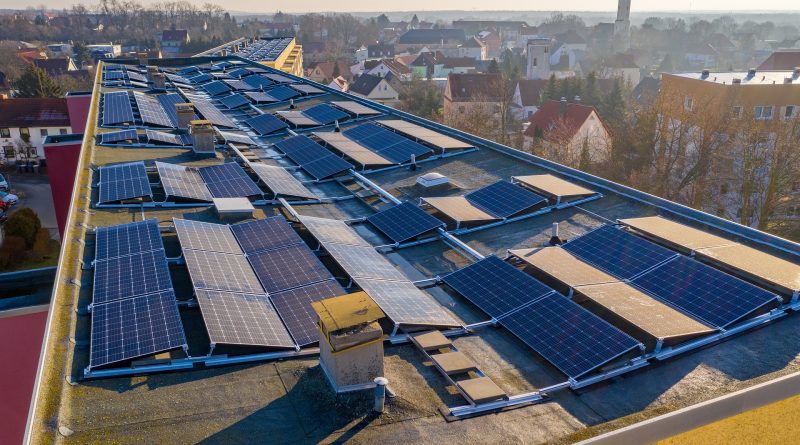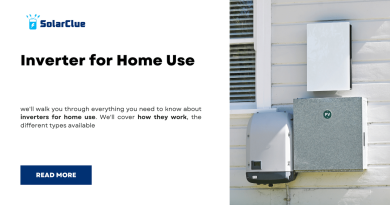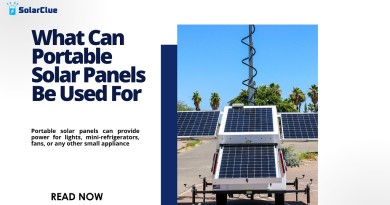Off-Grid Solar Power Systems: How Well Do They Work?
Table of Contents
The Rise of Off-Grid Solar Power Installations
In recent years, off-grid solar power installations have been gaining popularity as a sustainable and cost-effective alternative to traditional power sources. As people become increasingly concerned about the environmental impact of fossil fuels and the rising energy costs, off-grid solar power offers an attractive solution. But do these installations really work? In this blog, we explore the functionality, benefits, and limitations of off-grid solar power installations.
How Do Off-Grid Solar Power Installations Work?
Off-grid solar power installations rely on photovoltaic (PV) panels to generate electricity from sunlight. These panels contain numerous solar cells, which convert sunlight into direct current (DC) electricity. An inverter is then used to convert the DC electricity into usable alternating current (AC) electricity, which is required for most household appliances. When excess electricity is generated, it can be stored in batteries for later use during periods of low sunlight or at night.
The Benefits of Off-Grid Solar Power Installations
One of the key benefits of off-grid solar power installations is the ability to generate clean and renewable energy. By harnessing the power of the sun, these systems produce zero greenhouse gas emissions, helping to reduce carbon footprint and combat climate change. Moreover, off-grid solar power installations provide energy independence, as they are not reliant on the electrical grid. This can be particularly valuable in remote areas where grid access is limited or unreliable. Additionally, it offers a greater degree of self-sufficiency during power outages or natural disasters.
The Limitations of Off-Grid Solar Power Installations
While off-grid solar power installations have numerous benefits, they also come with certain limitations. One major limitation is the upfront cost. The initial investment required for installing solar panels, batteries, and inverters can be substantial. However, over time, these installations can pay for themselves through energy savings and potential government incentives. Another limitation is the storage capacity of the batteries. They can only hold a certain amount of electricity, meaning that users must be mindful of their energy consumption to avoid depleting the battery reserves.
Do Off-Grid Solar Power Installations Work?
In short, yes, off-grid solar power installations do work. With advancements in solar technology and increased efficiency of PV panels, these systems have become increasingly reliable and effective. They can meet the energy needs of households and even small businesses, especially in areas with abundant sunlight. However, the success of these installations also depends on proper design, installation, and maintenance. It is essential to evaluate the energy requirements, sunlight availability, and storage capacity to ensure that the system adequately meets the needs of the user.
Conclusion
Experience the freedom of energy independence with SolarClue®’s off-grid solar power systems. Discover how well these systems work in providing reliable and continuous electricity, whether in remote areas or urban spaces. Our scalable solutions cater to your growing energy needs, with battery storage ensuring uninterrupted power during low sunlight periods or emergencies. Benefit from clean energy while reducing your environmental footprint. With regular maintenance and top-quality components, SolarClue® ensures the optimal performance of your off-grid solar system. Embrace a sustainable energy solution tailored to your unique requirements. Contact SolarClue® today and embark on a journey towards self-sufficiency and eco-friendly living.
Frequently Asked Questions
Off-grid systems are designed to operate independently, providing power in areas without grid access. While they can replace grid electricity, the system size must match energy needs.
With proper design and battery storage, off-grid systems can offer reliable power, even during periods of low sunlight or grid outages.
Yes, well-designed off-grid systems account for seasonal variations and can provide consistent energy throughout the year.
Battery storage allows off-grid systems to store excess energy during sunny periods, providing a power reserve for cloudy days or low sunlight periods.
While commonly used in remote locations, off-grid systems can be installed in urban areas, providing energy independence and backup power.
With battery storage, off-grid systems inherently act as a backup power source during emergencies or grid outages.
Off-grid systems can be scaled by increasing the capacity of solar panels and battery storage to meet growing energy demands.
Regular maintenance includes checking battery health, cleaning solar panels, and inspecting the overall system for optimal performance.
Yes, in some cases, off-grid systems can be complemented with generators for extra backup power during extended periods of low sunlight.
Off-grid systems significantly reduce reliance on traditional power sources, promoting clean energy and minimizing environmental impact.



